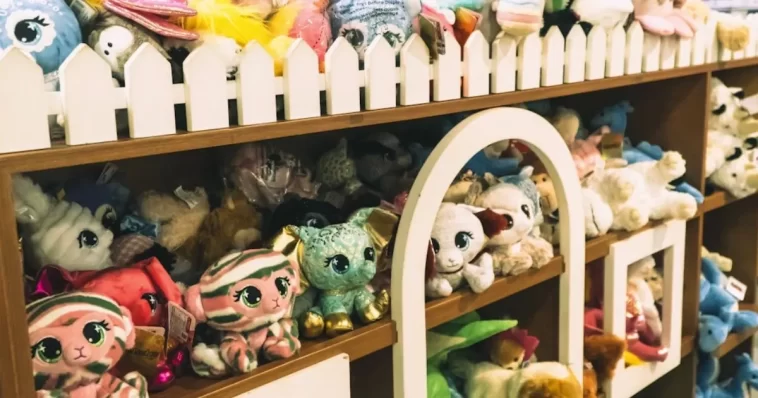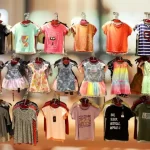Choosing toys for children has become about much more than fun. Modern parents, caregivers, and gift-givers increasingly prioritize ethical and sustainable practices, seeking toys that are safe, eco-friendly, and responsibly sourced. Among these, fair trade toys stand out as an exceptional option. They ensure that the artisans, workers, and communities who craft these items receive fair wages and work under safe conditions. In addition to fostering social equity, fair trade toys often emphasize quality, durability, and educational value, making them investments in both a child’s development and the well-being of global communities.
Understanding Fair Trade Toys
Fair trade toys are products that adhere to specific standards established by international fair trade organizations. These standards focus on fair wages, safe working conditions, the elimination of child labor, and environmental sustainability. Artisans and small-scale manufacturers in developing countries are often the ones who benefit the most from fair trade practices. When you buy a fair trade toy, you are directly supporting communities that might otherwise face exploitation, poverty wages, and unsafe working environments.
Fair trade certification often comes from recognized organizations, such as Fairtrade International, the World Fair Trade Organization (WFTO), and the Fair Trade Federation. Certified toys may carry labels or marks verifying that they meet these standards. However, many small-scale ethical brands also operate according to fair trade principles, even if they do not hold official certification.
Why Choose Fair Trade Toys
There are several reasons fair trade toys are becoming increasingly popular. First, they provide ethical assurance. Children’s toys are often made overseas, and in some cases, labor violations or unsafe production processes have made headlines. Choosing fair trade options means the labor behind the toys is respected and supported.
Second, fair trade toys tend to prioritize sustainability. Many are made from natural, renewable, or recycled materials. Wooden toys from responsibly managed forests, cotton stuffed animals from organic farms, and recycled plastic blocks are common examples. These toys are not only better for the planet but also often safer for children, as they avoid harmful chemicals and toxic dyes.
 +
+
Third, fair trade toys often come with a story. Handcrafted items carry the creativity, skill, and cultural heritage of the makers. This can transform an ordinary toy into a meaningful gift and an educational opportunity. Children can learn about different cultures, traditional craftsmanship, and the value of mindful consumption from an early age.
Types of Fair Trade Toys
Fair trade toys encompass a diverse range of categories, including classic wooden puzzles, plush toys, building blocks, and educational games. Some of the most popular types include:
1. Wooden Toys
Wooden toys are a staple in fair trade collections. They are durable, timeless, and often handmade. Artisans may craft wooden animals, puzzles, building blocks, and vehicles with careful attention to detail. Many brands use sustainably sourced wood and non-toxic paints. Wooden toys encourage open-ended play, creativity, and problem-solving skills, making them excellent educational tools for children.
2. Plush Toys and Dolls
Stuffed animals and dolls are among the most cherished toys for young children. Fair trade plush toys often use organic cotton, natural dyes, and hypoallergenic fillings. Handcrafted dolls may reflect traditional clothing and cultural designs, offering a unique, educational, and ethical gift. By choosing fair trade plush toys, consumers support artisans who receive fair pay and work in safe, dignified conditions.
3. Educational and STEM Toys
Fair trade principles extend beyond traditional toys to educational and STEM-focused items. Building kits, counting blocks, and science kits can be made from sustainable materials and manufactured under ethical conditions. These toys help children develop critical thinking, motor skills, and curiosity while promoting socially responsible consumption.
4. Artisanal and Handmade Toys
Some fair trade toys are created as one-of-a-kind or small-batch artisanal items. This can include hand-carved figurines, hand-painted puzzles, or craft kits made by local artisans. These toys often carry a higher price tag due to the skill, time, and ethical sourcing involved, but they also offer long-lasting quality and a meaningful backstory.
Popular Fair Trade Toy Brands
Several brands have gained recognition for their commitment to fair trade practices. Here are a few examples:
1. PlanToys
PlanToys is a well-established brand dedicated to sustainable and ethical production practices. Their wooden toys are made from rubberwood sourced from trees no longer producing latex. Non-toxic dyes and chemical-free manufacturing methods ensure a safe environment for children. PlanToys also focuses on empowering workers with fair wages and skill development programs.
2. Green Toys
Green Toys manufactures environmentally friendly toys made entirely from recycled plastic. Although not always officially Fair Trade certified, the brand emphasizes ethical labor practices and environmental responsibility. Products include building blocks, kitchen sets, and vehicles.
3. Bajo
Polish brand Bajo produces high-quality wooden toys with exceptional craftsmanship. The company adheres to fair labor practices and uses water-based, non-toxic paints. Their toys combine traditional design with modern play value, appealing to both children and parents.
4. Folkmanis
Folkmanis specializes in hand puppets and soft toys. Many of their puppets are handcrafted, offering fair compensation to artisans. These toys encourage imaginative play, storytelling, and social skills while supporting ethical production practices.
5. Global Crafts
Global Crafts collaborates with artisans worldwide to produce a range of toys, dolls, and educational items. Their model directly supports local communities, ensuring artisans earn fair wages and can maintain traditional craftsmanship techniques.
How to Identify Fair Trade Toys
Not all toys marketed as ethical or handmade meet fair trade standards. Here are some tips to identify genuine fair trade toys:
- Certification Labels: Look for labels from recognized fair trade organizations.
- Transparency: Brands should openly share information about sourcing, production practices, and worker conditions.
- Material Quality: High-quality, non-toxic, and sustainable materials are strong indicators of ethical practices.
- Artisan Support: Products that mention specific artisan communities, workshops, or co-ops often follow fair trade principles.
- Longevity: Fair trade toys are usually designed to last, reflecting both quality craftsmanship and environmental responsibility.
Benefits Beyond the Toy
Buying fairtrade toys has ripple effects that extend beyond the immediate enjoyment of the child. Fair wages help support families and entire communities, leading to better education, healthcare, and social stability. Artisans can preserve traditional crafts and skills, which might otherwise be lost in mass production. In addition, fair trade practices often involve environmentally conscious production methods, such as reducing waste, conserving resources, and promoting eco-friendly practices.
Children exposed to fair trade toys also learn values that extend beyond play. They develop awareness of global issues, empathy for others, and an understanding of social responsibility. Parents and caregivers can use these toys as conversation starters to explain ethical consumption, environmental sustainability, and cultural diversity.
Practical Considerations When Buying Fair Trade Toys
When selecting fair trade toys, there are several practical considerations:
Age Appropriateness
Ensure the toy is suitable for the child’s age and developmental stage. Wooden blocks, puzzles, and dolls come in various sizes and levels of complexity.
Durability
Fair trade toys are generally more durable than mass-produced plastic alternatives; however, it is still essential to inspect the construction quality. Well-made toys can last years and even be passed down, making them more sustainable and cost-effective in the long run.
Safety
Check for certifications, such as those from ASTM or CE marking, which indicate compliance with relevant safety standards. This is especially important for toys intended for toddlers and young children.
Educational Value
Consider how the toy promotes learning and skill development. Puzzles enhance problem-solving, building sets foster creativity, and dolls encourage imaginative storytelling and social play.
Environmental Impact
Sustainably sourced materials and biodegradable or recyclable packaging are signs of environmentally responsible practices. Opting for toys made from organic cotton, natural rubber, or FSC-certified wood helps reduce the ecological footprint.
Challenges and Considerations
Despite their benefits, fair trade toys can be more expensive than conventional options. The higher cost reflects our commitment to fair wages, safe labor practices, and the use of high-quality materials. However, the investment supports social and environmental causes, making it a meaningful purchase rather than an indulgence.
Availability may also be limited in some regions. Online marketplaces, specialty stores, and direct purchases from artisan cooperatives are often the best ways to access these toys. Consumers can also explore subscription boxes that focus on ethical and fairtrade products for children.
The Future of Fair Trade Toys
The market for ethically and fairly traded toys continues to grow. Increased awareness among parents, educators, and gift-givers is driving demand for products that align with social and environmental responsibility. Brands are innovating by combining traditional craftsmanship with modern play concepts, interactive educational features, and eco-conscious designs.
In the future, fair trade toys may become the standard rather than the exception. As transparency in supply chains improves and consumer demand for ethical products rises, more companies are likely to adopt fair trade principles. This would lead to a positive impact on global labor practices, environmental sustainability, and the educational value of toys.
Why Fair Trade Toys Matter
Choosing the best fair trade toys is not only about selecting fun and engaging items for children; it’s also about supporting a cause that promotes social justice and environmental sustainability. It is about supporting ethical labor practices, preserving traditional craftsmanship, and promoting sustainability. From wooden puzzles and plush dolls to STEM kits and artisanal creations, fair trade toys offer a unique blend of quality, education, and social responsibility.
Parents and caregivers can feel confident knowing that each purchase contributes to a better world. Children benefit from toys that are safe, durable, and enriching, while communities benefit from fair wages, safe working conditions, and the preservation of cultural heritage.
In a world increasingly aware of ethical consumption, fair trade toys stand out as a thoughtful and impactful choice. They are more than just playthings; they are tools for learning, empathy, and global responsibility. Investing in fair trade toys is investing in children, communities, and the planet.



